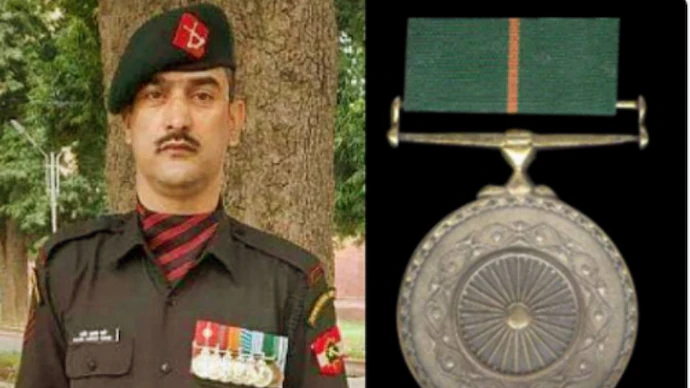It was the early nineties and the opiate of ‘azadi’ [freedom] fed to Kashmiris youth in training camps located in Pakistan occupied Jammu and Kashmir [PoJK] by Pakistan Army’s spy agency Inter Services Intelligence [ISI] as well as its elaborate network of over-ground workers in the Kashmir Valley was working wonders.
Deceived into believing that ‘azadi was just around the corner’ and driven by the romanticism of becoming rebels and heroes of sorts, the gullible youth of impressionable age thronged to pick up the gun and wage what they were duped into believing was a “freedom struggle.”
The then Pakistan Army chief-turned-dictator Gen Zia ul Haq was so impressed by the success of the mujahideen [Islamic warriors] groups created by ISI to fight the Soviets in Afghanistan, that he ordered the replication of this exercise in J&K. However, he did so despite knowing very well that when the Pakistan Army had miserably failed in its attempts to annex J&K twice, an irregular force stood no chance.
Nevertheless, Gen Zia went ahead with this perverse plan since he saw it as a win-win situation for Rawalpindi as it would bleed India through a thousand cuts without causing Pakistan Army any harm. By indoctrinating Kashmiris to pick up the gun against the Indian state with the pipe dream of azadi would compel New Delhi to deploy a sizeable force to counter this threat. This would significantly reduce the numerical superiority the Indian army enjoyed and corresponding reduce the threat perception.
Most importantly, while Indian security forces and law enforcement agencies would suffer casualties, Kashmiri terrorists being killed during operations by security forces made no difference whatsoever to Rawalpindi as there was no need of any financial compensation for these deaths. Thus, this was truly a ‘win win’ situation for Pakistan Army and that’s why Rawalpindi still continues to sponsor terrorism in J&K, and such is its resolve that ISI has even created a conglomerate called Muttahida [united] Jihad Council comprising Pakistan based terrorist groups fighting in J&K to coordinate this proxy war.
Nazir Ahmad Wani
Amongst the hundreds of Kashmiri youth who joined terrorist ranks, there was a young boy named Nazir Ahmad Wani. A resident of Cheki Ashmuji village in South Kashmir’s Kulgam district, Wani came from a poor family he dropped out of school and was earning a paltry sum while working as a carpet weaver but with the advent of terrorism in Kashmir, he was easily hoodwinked into believing that the so-called mujahideen were rendering yeoman service to their community.
However, after realising that ISI was actually using Kashmiris as expendable pawns to further its own motivated agenda, Wani decided to quit terrorising fellow Kashmiris in the garb of waging an ‘armed struggle’. After surrendering, he had the option of returning to civilian life. However, having personally witnessed the atrocities that the terrorists were inflicting on hapless Kashmiris, conscious-stricken Wani decided to redeem himself and so he joined Ikhwan, a counter-terrorist group formed by former terrorists to help security forces in combating the scourge of terrorism.
Though Ikhwan was disbanded in 2002, Wani’s determination to fight Pakistan Army’s proxies in J&K remained intact and this inspired him to join the Territorial Army battalion of the Jammu and Kashmir Light Infantry in 2004. He soon proved his mettle and just three years later he was awarded Sena Medal for conspicuous gallantry during anti-terrorist operations.
With age, people usually become more cautious and avoid putting themselves at risk, but it’s apparent that fear had no place in Wani’s dictionary and in 2018, he was yet once again awarded a Sena Medal for gallantry, which speaks volumes about his personal courage and extraordinary grit.
Having been decorated twice for valour could have induced Wani to play safe and rest on his laurels but he was a diehard soldier and not just a glory-seeker. He continued to volunteer for participating in anti-terrorist operations and his exceptional professional skills proved to be an asset. As per a relative, in his 14-year-long military service, Wani was instrumental in eliminating about 30 terrorists, including many top commanders, which is no mean achievement.
Kashmir’s True Patriot
On November 25, 2018, Wani laid down his life while fighting a group of six Lashkar-e-Taiba [LeT] terrorists in Shopian district’s Hirpora village in South Kashmir who had taken refuge in a house. During this action, Wani eliminated the self-styled LeT ‘district commander’ as well as another foreign terrorist in close quarter combat. Unfortunately, while doing so he sustained serious gunshot wounds but his injuries didn’t deter him and even with his life ebbing, Wani still took on another terrorist trying to escape and wounded him before succumbing to his injuries.
In recognition of the “unparalleled bravery” displayed by Lance Naik Nazir Ahmad Wani, he was posthumously awarded Ashoka Chakra, India’s highest peacetime award in 2019. The extraordinary courage and exemplary devotion to duty demonstrated by this terrorist-turned-patriot serves as an inspiration to all those combating the scourge of Pakistan Army sponsored terrorism.
Wani genuinely wanted to do something for his people and that’s why he easily fell prey to ISI’s disinformation campaign and picked up the gun for this purpose. However, on realising that he had been deceived and how instead of being a solution to the woes of Kashmiris, mujahideen were the very cause of the problem and this realisation resulted in Wani’s transformation from a dreaded terrorist to a ‘terrorist slayer’.
That Wani passionately devoted himself in making life of his people better by playing his part in eradicating the scourge of terrorism in Kashmir and even laid his life while doing so is indeed praiseworthy.

